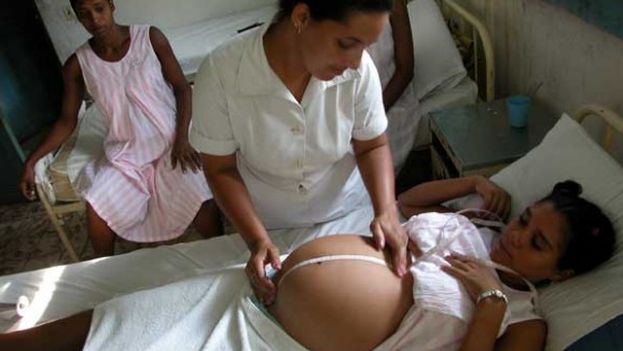
![]() EFE (via 14ymedio), 13 December 2015 — Teenage pregnancy has increased in Cuba, where in 2014 the recorded fertility rate for minors younger than 20 was 51.6 births per thousand women, representing more than 15% of the country’s total fertility, according to data released today in the official press.
EFE (via 14ymedio), 13 December 2015 — Teenage pregnancy has increased in Cuba, where in 2014 the recorded fertility rate for minors younger than 20 was 51.6 births per thousand women, representing more than 15% of the country’s total fertility, according to data released today in the official press.
Starting sex at increasingly younger ages, between 12 and 13 on average, has set off alarm bells among doctors, nurses, employees of the Ministry of Public Health (MINSAP), and researchers from the Center for Demographic Studies , among other entities, reports an article in the official newspaper Juventud Rebelde (Rebel Youth).
In the eastern provinces, and particularly in Granma, Las Tunas and Holguin, the highest number of teenage pregnancies are recorded, while at the national level, there is a slight increase in adolescent fertility in the age group between 10 and 14 years of age, while a slight decrease of the phenomenon can be seen in those between the ages of 15 and 19.
Researcher Daylin Rodriguez from the University of Havana’s Center for Demographic Studies (CEDEM) reported the data this week in Havana, at the 13th Workshop of Dialogs About Youth, organized by the Center for Youth Studies (CESJ), according to Juventud Rebelde.
The researcher found it “troubling” that teenage fertility has recently grown in the cities, although pregnant teenagers are still more predominate in rural areas of the island.
Mistaken beliefs, the naiveté of that stage of life, misinformation and the immature conviction that nothing bad can happen, lead more than a few teenagers to initiate sexual intercourse without the appropriate responsibility that comes with that decision, the report warns.
Also notable were the results of the CESJ study, “Adolescents and Young Cubans in the Areas of Family and Relationship,” concluded last February, which noted that it is common for teenage pregnancies to be “unwanted or unplanned” within a weak relationship.
The reports points out that these circumstance lead teenagers to reject and hide their condition for fear of the reaction of their families, leading to “late or insufficient” prenatal care.
“Pregnancy bursts into life at a time when teenagers have not yet reached physical and mental maturity, sometimes in adverse circumstances such as nutritional deficiencies, and in a family environment not receptive to accepting it, sharing in it and protecting it,” says the study.
It further notes that among the psychological and social repercussions of a pregnancy at this stage of life is the fact that these are young people who are still at school or starting out on their working lives, so that this process “interferes with their schooling, work and professional futures,” in addition to creating economic and family challenges.
